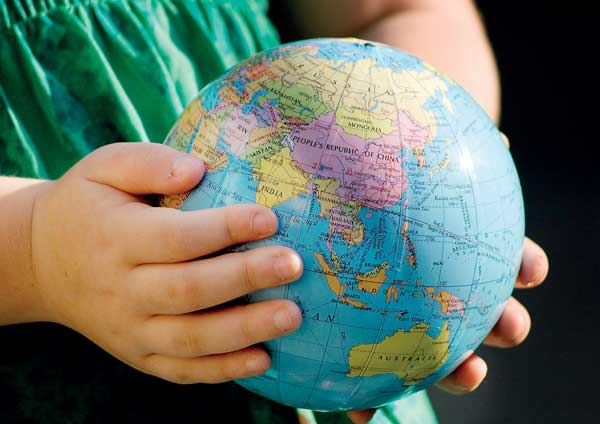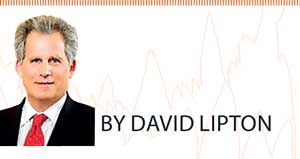06 Jul 2016 - {{hitsCtrl.values.hits}}

 There were a lot of dramatic headlines recently suggesting that Brexit signals the beginning of the end of globalization. Surely, it is too soon to understand all the ramifications of the British referendum. But at the same time, today is surely a good day to make the case for multilateralism. While there are plenty of reasons to be concerned about the future, I will argue that globalization still has promise. But to achieve that promise, we will need a fresh look at multilateralism and the role the international financial institutions can play.
There were a lot of dramatic headlines recently suggesting that Brexit signals the beginning of the end of globalization. Surely, it is too soon to understand all the ramifications of the British referendum. But at the same time, today is surely a good day to make the case for multilateralism. While there are plenty of reasons to be concerned about the future, I will argue that globalization still has promise. But to achieve that promise, we will need a fresh look at multilateralism and the role the international financial institutions can play.
My generation can be excused for assuming that history moves in one direction: We have experienced globalization and with it rising incomes and economic progress at home and abroad. Our experience was different than our parents’ generation, which came of age experiencing depression and war.
But now the Brexit vote raises the possibility of an abrupt change in direction. While that vote may have hinged on sentiments about migration and sovereignty, its effect will be the withdrawal of the U.K. from one of the greatest projects of economic integration.
European unity has been part of our generation’s narrative – from the creation of the coal and steel community in 1951, to the creation of the euro, to the reintegration of central and eastern Europe. Brexit is, at the least, an interruption in that
integration process.
Could the same doubts that gave rise to Brexit lead to an interruption
in globalization?
Many people say globalization is unstoppable. Integration has been achieved. There is no going back. I hope so. But Brexit and the economic trends in the world should cause us to pause, and to think again
about irreversibility.
Despite decades of deepening integration, many have come to question whether closer global integration will bring them meaningful benefits, and they see costs and vulnerabilities, both economic, but also social and cultural. Without clear economic benefits, the costs, including a sense of lack of control, can dominate public opinion.
The critics can point to evidence: for people in advanced economies, the global financial crisis was a hit to wealth and, for many, retirement prospects; and growth recovery is still sluggish. People feel the effects of income inequality, stagnating wages, and a lack of job security; and they sense and fear
market volatility.
At one level, we have to admit that there are some economic forces at play we don’t yet fully understand: we cannot satisfactorily answer some important questions. Are we in secular stagnation? Does the trend toward lower real interest rates over the last 15 years reflect a drying up of investment possibilities? We will need to continue looking at
these questions.
The reality
So what can we say? Let me make
three points:
First, globalization has lifted hundreds of millions of people out of poverty and raised the living standards across the globe. There is every reason to believe it still holds the promise of supporting rising living standards in advanced economies and emerging markets and developing countries alike. But to preserve and protect that promise, we will have to work to enhance the gains of globalization, limit the costs and vulnerabilities, and make the case to a sceptical public.
Second, as has always been the case, much of what needs to be done requires action at the individual country level. We, at the Fund, have called for a three-prong approach to boosting growth, with support for demand coming from both fiscal and monetary policies, and with structural reforms tailored to support demand in the short run and to boost potential growth over time. While this remains the right recipe, it is clear that individual governments see limits to their room for manoeuvre, and so far have not made sufficient progress.
And third, we need multilateralism now more than ever. Part of the political problem today is that national leaders cannot really solve domestic problems, nor fulfil the aspirations of their people, with domestic action. That is because their country’s prospects depend too heavily on
global prospects.
So, we need everyone pushing in the same direction at the same time. That is why it is important for the IMF to rally its membership to act in harmony. With each country doing its part, the impact will be greater, and leaders can have some greater assurance that growth will be based on demand creation, not
demand diversion.
And we also need to consider how to make sure that the international monetary system is supportive of individual country efforts, creating growth opportunities and
lowering vulnerabilities.
When I say this, I have a couple things in mind. Even if the advanced economies are facing a form of secular stagnation, in principle the emerging markets and developing countries hold the potential to be the engine of growth over the next generation, as rapid growth leads to convergence in living standards toward advanced levels. However, we are seeing a perverse slowdown in potential growth in emerging markets and developing countries. With present projections, many large emerging markets cannot expect to see convergence at all. That is perverse because with the availability of technology, Internet communications creating educational opportunities, and ample funds for investment, those countries should be accelerating and speeding convergence in living standards.
Now surely, emerging markets and developing countries still have much to do at home to adjust to global events and foster faster growth. But the volatility of the global economy and especially of large flows of short-term capital has not been helping. Rather it is leading emerging markets and developing countries to have to act defensively, guarding against openness, worrying about borrowing and current account deficits and self-insuring with weak currencies and reserve accumulation.
Re-examination of the international monetary system can help here. We can reassess how macro prudential and capital flow measures can provide protection. We can ask how to promote growth supporting equity flows. And how we can better promote technology transfer.
And we can create a better global financial safety net, including through IMF coordination with regional financing arrangements, and possibly new IMF
lending facilities.
There is also room for cooperation with the new multilateral institutions like the Asian Infrastructure Investment Bank, whose formation we welcome.
Let me end by observing that the new normal in global economics has a parallel in global politics. Ian Bremmer of the Eurasia Group has dubbed this a “G-zero”, a world characterized by a “vacuum of global governance”. Hegemony, for better or worse, no longer prevails. Nor are traditional security relationships coping with the evolution of security challenges. With a growing number of important geo-political risks, and their adverse impacts on economic growth and stability, we will need to pay more attention to the interplay between economics and geopolitics. We see this already in addressing events in the Middle East, Africa, and the refugee issue in Europe.
In the economic realm, the IMF can be a voice for global cooperation and collective action. The IMF is stronger than ever, and better able to deal with economic challenges. Now we must continue to address the new challenges that arise with creative, multilateral solutions that can respond to our rapidly changing world.
(David Lipton is the Deputy Managing Director of the International Monetary Fund)
10 Jan 2025 21 minute ago
10 Jan 2025 2 hours ago
10 Jan 2025 3 hours ago
10 Jan 2025 4 hours ago
10 Jan 2025 4 hours ago